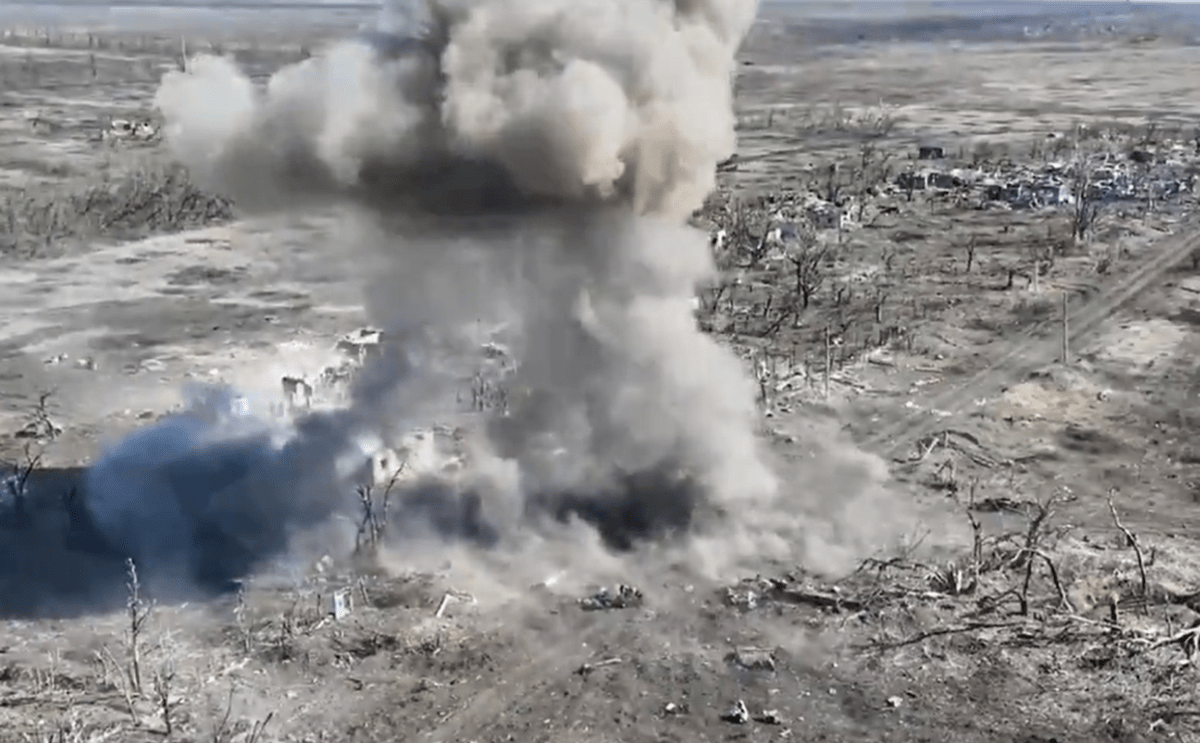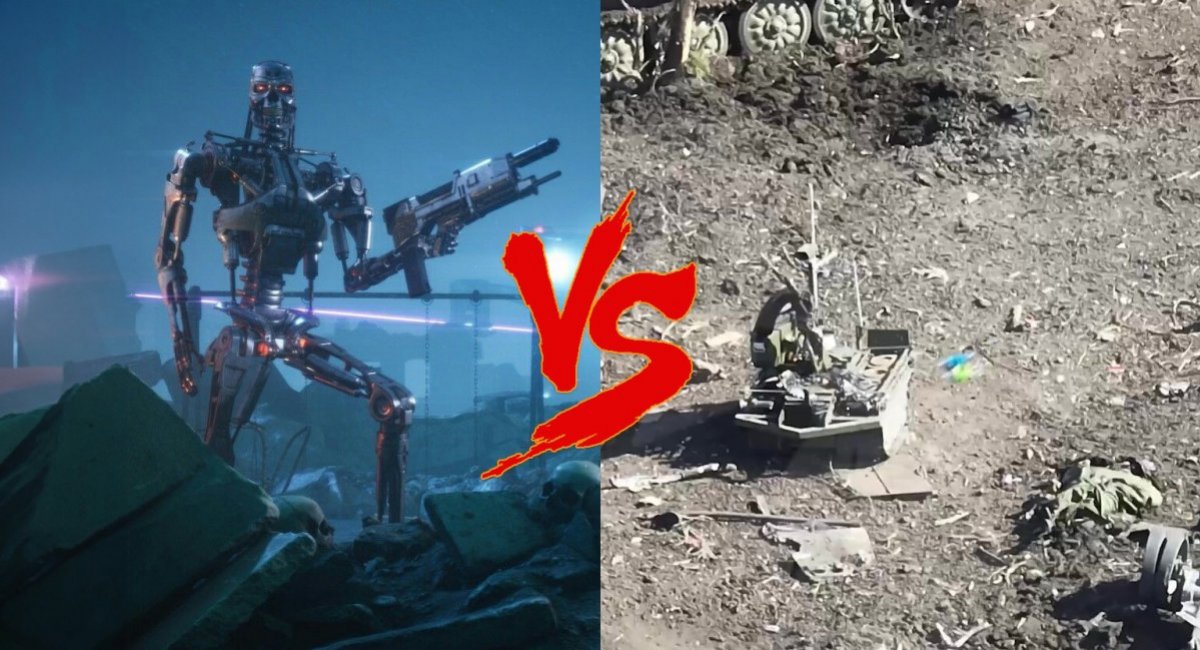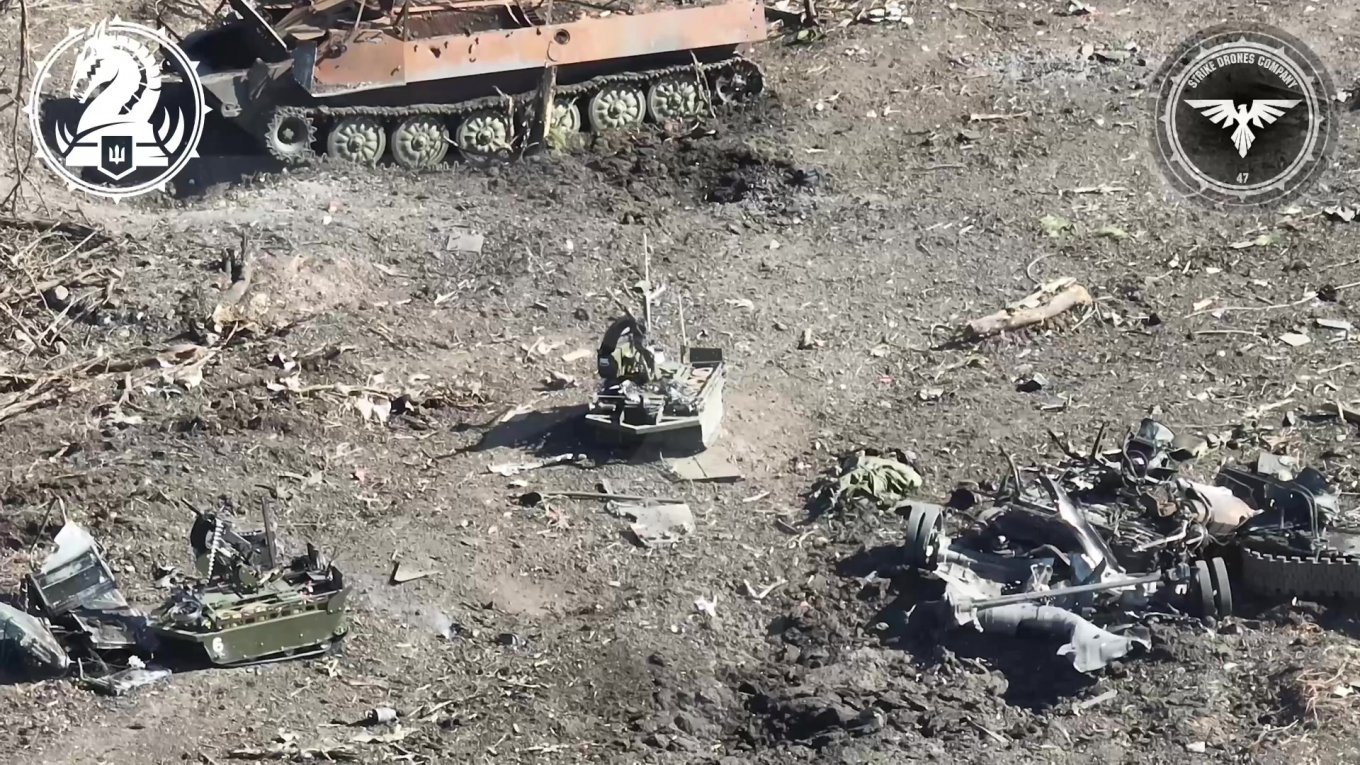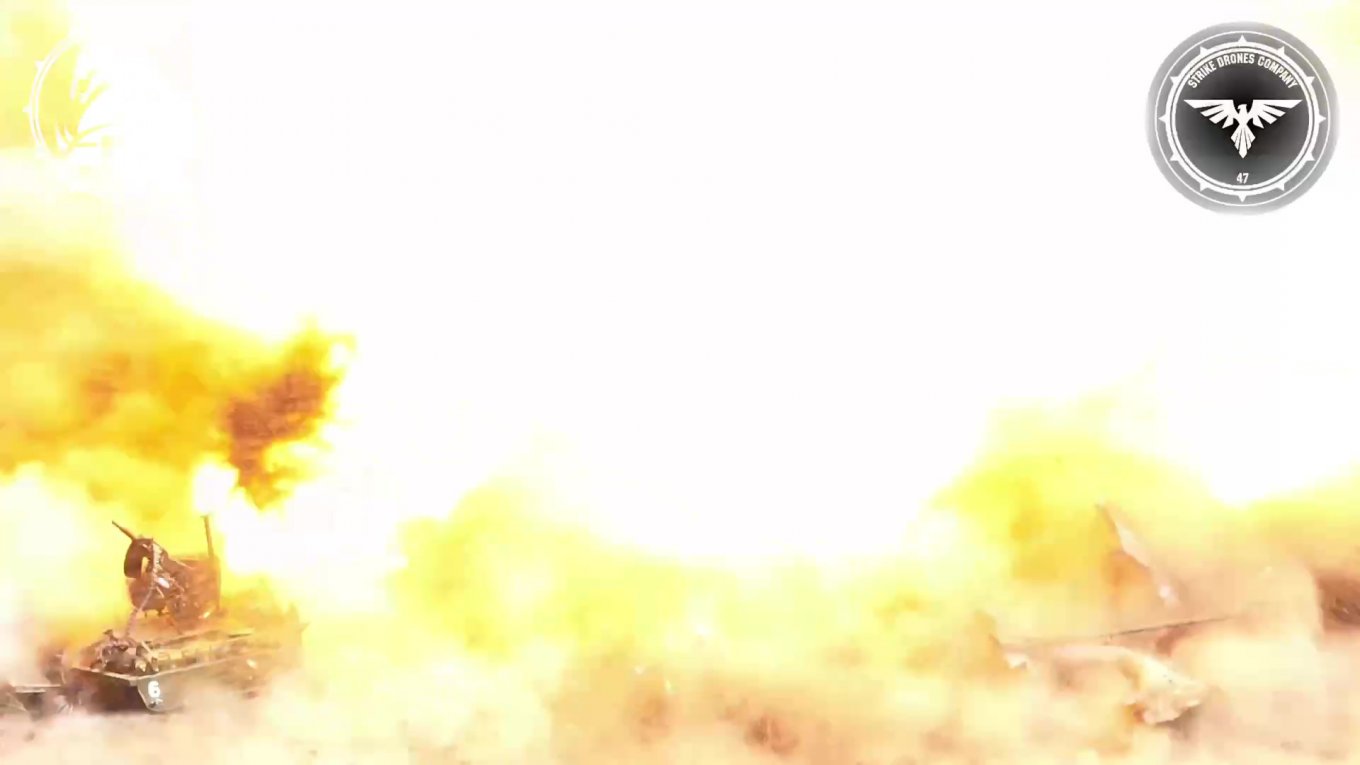Explosive Ukrainian drones have taken out Russian combat robots close to the Moscow-controlled strategic eastern city of Avdiivka, new footage appears to show, with smaller ground drones likely to have a more prominent role in future fighting.
Russian forces have started using ground-based robots with automatic grenade launchers in combat in Ukraine, Kyiv's 47th Mechanized Brigade said in a post to social media on Saturday.
Ukraine used first-person-view drones to take out two of the combat robots close to Avdiivka, a hotspot of fighting in Ukraine's eastern Donetsk region, the brigade said. Moscow captured Avdiivka in mid-February, and clashes have since raged on west of the settlement.

In a brief video published on messaging app Telegram by the brigade, what appears to be at least one Russian uncrewed ground vehicle (UGV) is targeted by drone specialists belonging to the brigade.
"So far, these are isolated cases of the Russians using such a technique," the brigade added.
Newsweek could not independently verify this footage and has reached out to the Russian Defense Ministry via email for comment.
Moscow and Kyiv have invested heavily in uncrewed vehicles, most prominently in the air, but also on the ground and on water. Russia and Ukraine are both using ground drones in their war efforts, often designed to keep soldiers further away from hostilities as the uncrewed vehicles take on dangerous missions.
Russia has developed several types of ground drones, including the AI-enabled "Marker" combat robot and the Zubilo UGV, designed to help with logistics. Ukraine, too, is forging ahead with developing and deploying UGVs.
More and more small, light combat and logistics ground drones are appearing across the front lines, many of which are made by troops or volunteer organizations and feature more rudimentary designs that can be quickly assembled, said Samuel Bendett, of the Center for Naval Analyses.
The video published by Ukraine's 47th Mechanized Brigade shows UGVs that have been incapacitated then repeatedly targeted by Ukrainian drones, meaning the ground drones were likely swiftly identified and destroyed, Bendett said.
"What we will witness is the use of many cheap, light UGVs like those in this video that can be quickly put together, potentially quickly lost if necessary, and quickly replaced," he told Newsweek.
With the sheer number of reconnaissance and surveillance drones in the air—able to sniff out larger, more sophisticated UGVs that Moscow has developed, like the "Marker"—"it's unlikely that large UGVs can appear in this war, at least for the foreseeable future," Bendett evaluated.
From the clip published by Ukraine's military, it is not clear what the circumstances around the targeting of the Russian UGVs were. It is hard to tell whether the UGVs were sent out instead of soldiers, or alongside troops, Bendett said.
"As more UGVs will enter combat, both sides will try to develop tactics and concepts for integrating them in assault and battlefield operations" and take away some of the danger for human fighters, he continued.
Both Russia and Ukraine are pushing to develop UGVs that can increasingly operate on their own, he added.
In mid-September 2023, Ukraine's drone tsar and Digital Transformation Minister, Mykhailo Fedorov, said Ukraine was testing its "Ironclad" unmanned robot in combat missions on the front lines.
It is equipped with a machine gun, or robotic combat turret, and is designed to help assault enemy positions, conduct reconnaissance missions and provide fire support, Fedorov said. It can reportedly travel at a speed of up to 12 miles per hour.
At the start of 2024, Ukraine's ground forces said its 5th Separate Assault Brigade was using a ground-based combat drone to target Russian positions.
First Ever Drone Duel Between Ukrainian Drones and Russian Robotic Platforms, Recorded in the Avdiivka Direction

The 47th Separate Mechanized Brigade Magura of the Armed Forces of Ukraine demonstrated how the battlefield of the relatively near future would look
Ten years ago, in science fiction works featuring drone warfare, the depiction of it resembled a confrontation between various Terminators, androids, and massive humanoid combat robots, rather than what is happening in real life on the actual battlefield now.
However, the reality demonstrated by the 47th Separate Mechanized Brigade of the Armed Forces of Ukraine now appears as follows:
Read more: Russia Develops Computer for FPV Drones with Machine Vision and There Are Other Equally Threatening Things
In the video, there is an attempt by the russian occupying forces to use robotic platforms equipped with an AGS-17 automatic grenade launchers. Two such AGS-17s attempted to shell the positions of Ukrainian fighters in the Avdiivka direction immediately.

However, they were detected using a Mavic-type quadcopter and destroyed by FPV drones. Moreover, it appears to be the first, at least qualitatively documented case in history, of a duel solely between drones.

Only a few additional points need to be considered. In particular, on one of the russian robotic platforms, the number "6" is visible, which could be an ordinal number indicating that the enemy has more of such devices. In addition, it seems that both drones are carrying anti-tank mines. It is quite possible that another task of these drones was mine laying, or this is an additional means of self-destruction for maximum impact. However, such equipment only led to the expected outcome.
Earlier Defense Express reported about Ukraine`s needs of producing its own drones.
ByDylan Malyasov
Mar 31, 2024

A Ukrainian drone successfully targeted and destroyed the T-90M, the latest main battle tank to enter frontline Russian service.
The strike, which took place near the eastern town of Avdiivka.
Video footage capturing the engagement was released by Alexander Pivnenko, the commander of the Ukrainian National Guard Unit (NGU). The drone, operated by the 1st Squadron of the Special Purpose Center “OMEGA,” detected the T-90M tank positioning itself for combat. Utilizing an drone, the Ukrainian forces precisely delivered the strike, resulting in the destruction of the Russian tank.
The T-90M, often touted by Russian President Vladimir Putin as the world’s best tank, has faced significant setbacks on the battlefield. Despite Putin’s claims of its superiority, the T-90M has encountered formidable challenges in Ukraine.
Prior to the full-scale invasion of Ukraine, the Russian Ministry of Defense had signed contracts for over 150 T-90M tanks.
Analysts, drawing from open-source intelligence, estimate that Russia has lost at least 70 T-90M tanks in the war with Ukraine. Additionally, several T-90M tanks have been captured as trophies by Ukrainian forces, further underscoring the challenges faced by Russia in maintaining its armored assets.

No comments:
Post a Comment